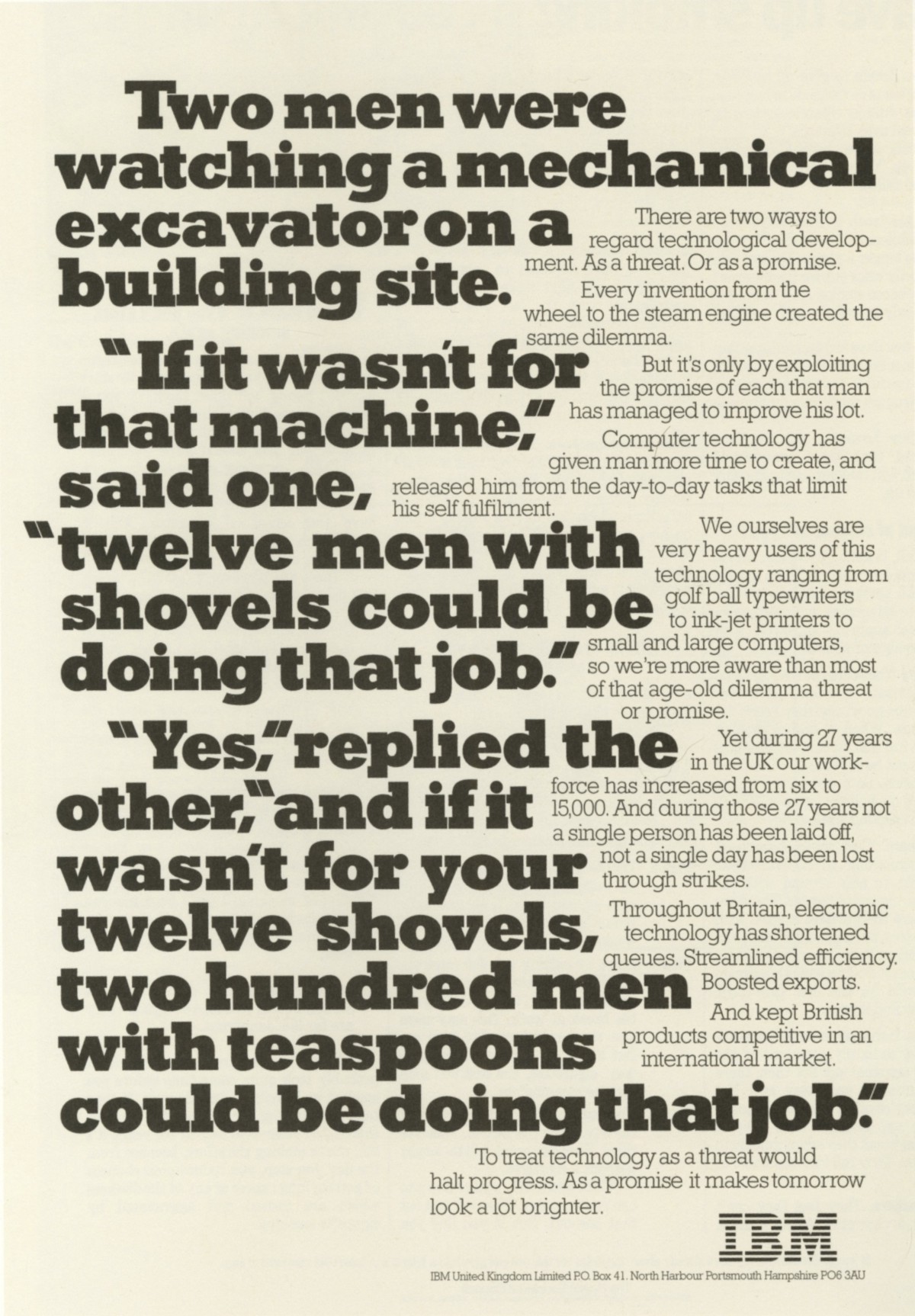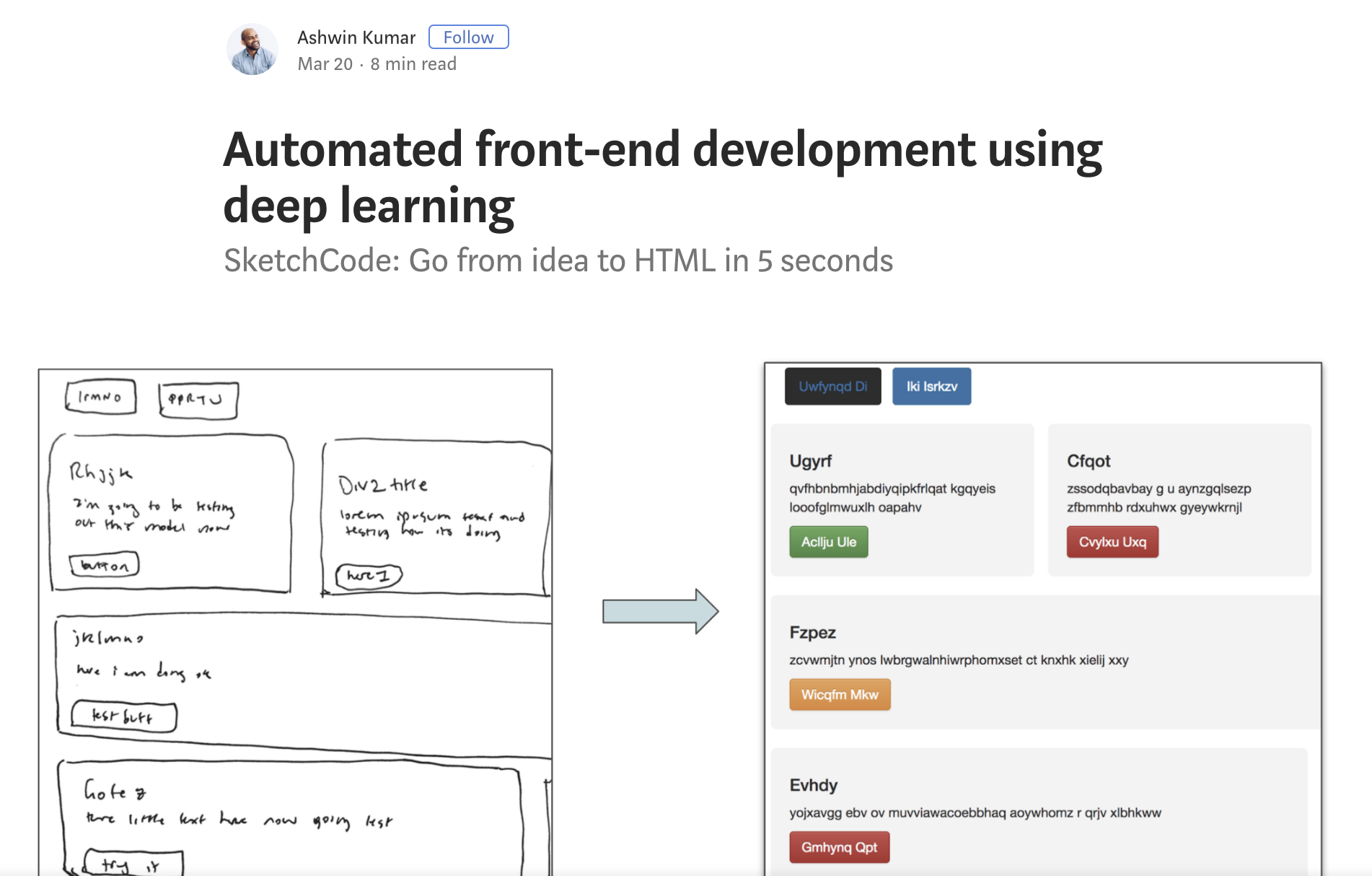Victims of Progress: developers in the age of AI
Are you a developer? How do you feel about this 1980s IBM ad?

Was your reaction something like this:
“Of course we don’t want to replace excavators with shovel-weilding manual labor! Progress is inevitable and it helps society!”
I agree with you. Now… how does this article’s title make you feel?

That’s right; this person found a way to automate the generation of front-end HTML code from simple doodles. And he’s not alone. AirBnB is trying it. Microsoft is trying it. As are many others. Mark Cuban is warning people to get liberal arts degrees instead of CS degrees because in 10 years, AI will have automated programming. To quote a wonderful discussion on The Practical Dev on this subject:
@skittles_mcbangbang: “Non-programmers are also capable of logic, and one might argue have a better grasp of what the intended product is supposed to look like. And if you provide them a quick enough feedback loop between them writing an english sentence and seeing app behavior change…”
@kallie: “Yeah that would arguably be better than your normal development pipeline. Hyper-rapid development and testing.”
Are you feeling like a shovel operator yet? Seeing the outlines of excavators on the horizon?
Historically, software developers has always been the beneficiary of technological progress, never the victim. Sure there have been other victims - from automated factory floors to self-driving cars to chatbots; our work has redefined many traditional job markets and will continue to do so. AI and ML threaten to exponentially increase that pace of change.
So far, developers have believed themselves immune from this revolution. But how accurate is that belief?
AI automation may soon change what we consider the “Developer” role. By bringing efficiency to the work of writing code, AI will allow us to engage in “higher thinking” - creativity, problem solving and semantic reasoning; but it will also replace a lot of current IT jobs.
Unfortunately we are terribly unprepared for that eventuality.
Our industry is terrible at welcoming anyone who doesn’t fit a certain stereotype. Ageist. Sexist. Racist. Lacking diversity & inclusion. Hostile to career changers. Even people in highly critical roles that affect our daily work - like UX, design, BA, PM, QA, managers etc. - are considered “non-technical”, and therefore not our equals. What happens to all those non-elites who get left behind in the AI and data apocalypse?
And if you were thinking that the “broader society” would provide a safety net: remember NAFTA? The original proposal included a fund for “displaced worker retraining”. Guess what happened to that fund?
In order to benefit from this coming AI revolution, we need to embrace it early. Of course that means early investments in data science literacy, DevOps, and platforms. But even more importantly, we will need to tackle these long-standing social problems in the tech industry. Because when development is defined not as “coding” but as “problem solving”, teams that bring a diversity of ideas, experiences and viewpoints will have a crucial competitive advantage.
